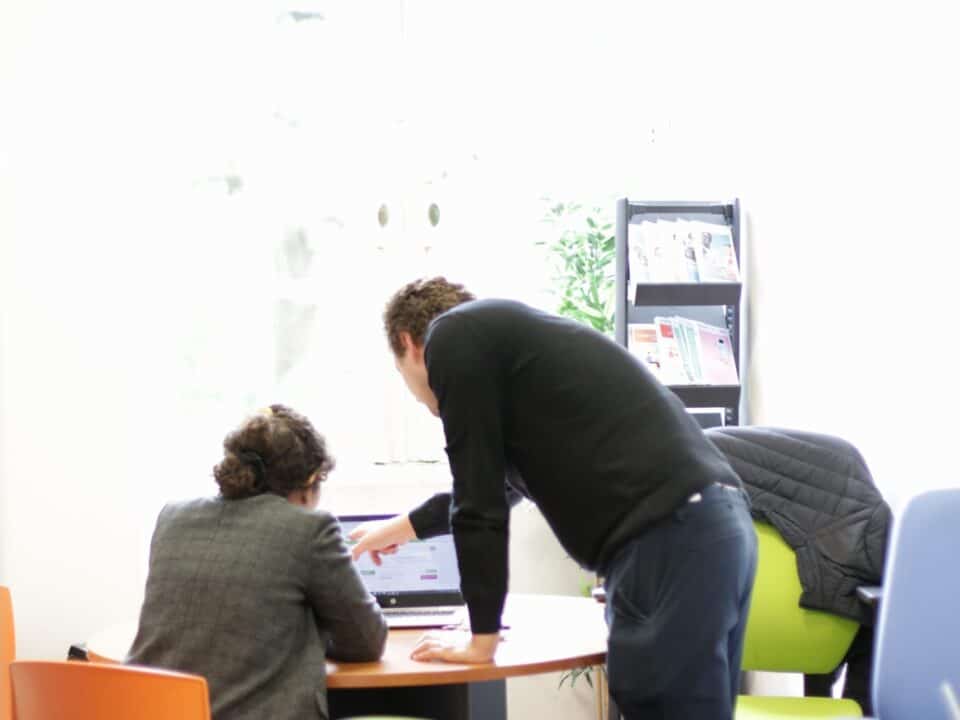
What is the impact of COVID 19 on the mobility of international students and researchers?
On October 8th, 2020, the Cité internationale universitaire de Paris, AEF Info and Campus France organized a webinar about the impact of COVID 19 pandemic on the mobility of international students and researchers.
What is the impact of this crisis on the applications and enrolment of international students in French higher education institutions? How did the institutions anticipate and prepare a «not like the other» start of school for their foreign students? What have been the consequences for diplomatic posts? What are the challenges of academic mobility for the coming months and years?
Learn more about the discussions and responses from the speakers by watching the replay webinar: https://vimeo.com/466163964
Speakers:
- Anaïs Gérard, Editorial Director AEF Info,
- Laurence Marion, Déléguée générale de la Cité Internationale Universitaire de Paris,
- Béatrice Khaiat, Directrice générale de Campus France,
- Sonia Jedidi, Attachée de coopération scientifique et universitaire à l’ambassade de France au Maroc,
- Sandrine Lacombe, Vice-Présidente des relations internationales de l’Université Paris-Saclay,
- Thomas Froehlicher, Directeur général de Rennes Business School.
Key information to remember
Less visas issued, European mobility down, fewer Chinese and Indian students … Here is the state of play of this Fall 2020 prepared by the speakers of the webinar
Laurence Marion : the situation on Cité Internationale Universitaire de Paris campus
At the Cité Internationale Universitaire in Paris, the students are there, the houses are full. However, there was a 17% drop in applications. After a sharp drop in the spring, applications grew again.
There was a sharp drop in applications from certain nationalities, primarily students from the United States (-64%), China (-45%), Brazil (-40%) and India (-32%). The decline in requests from Algerians (-18%) and Moroccans (-14%) is much smaller.
On the other hand, there was an increase in requests from the Lebanese and Tunisians (for the latter, in connection with the opening of a second pavilion at the House of Tunisia).
Assistance and support schemes for residents have been strengthened to deal with the difficulties encountered by the students in the context of the health crisis.
In addition, with its Welcome Desk Paris and the acc&ss Paris Ile-de-France portal, the Cité Internationale opens its support offer to all students and researchers from Paris Region, especially for the difficulties encountered with residence permits.
Béatrice Khaïat : international students coming in France at the beginning of the 2020 school year
Campus France notes that France is one of the only countries to have stated that it continues to welcome international students and to have issued visas allowing this mobility. However, Campus France announced a 26% decrease in the number of visa applications and 29.7% in the number of visas actually issued compared to October 2019.
Several possible explanations for the decline in the number of requests for student visas:
- a concern about the pandemic,
- a postponement of examinations leading to a postponement of a departure for France,
- a more precarious financial situation,
- a decline in the number of visas for minors in school that can be explained by the fact that Schengen visas for accompanying persons were not issued anymore.
What is the situation with other countries? Australia, the USA and Canada have closed their borders but offer distance education. Germany has postponed its start of the school year to November. France seems to have a special status, having made the choice to bring international students, even from the red zones (with a health protocol).
Campus France has also published a catalogue of distance learning courses. Moreover, grants can be awarded even for online education.
Mobilization of French higher education institutions
French higher education institutions keep on welcoming international students and researchers. They do their best to ensure quality education in the context and to allow the welcoming of international students, in particular:
- allowing late arrival and start of courses,
- providing financial assistance for the purchase of computers,
- starting the payment of scholarships even before the arrival in France,
- developing distance learning courses and tracking tools for this type of education.
In addition, 200 establishments have mobilized for the Bienvenue en France label, and proposed 130 people as experts of the welcoming of international students.
89 establishments are already certified.
A substantial investment has been made by many institutions in equipment to provide comodal education.
For Sonia Jedidi, French diplomas being prized and having a great value on the world labour market, there should be no loss of attraction for mobility in France in the long term…


























